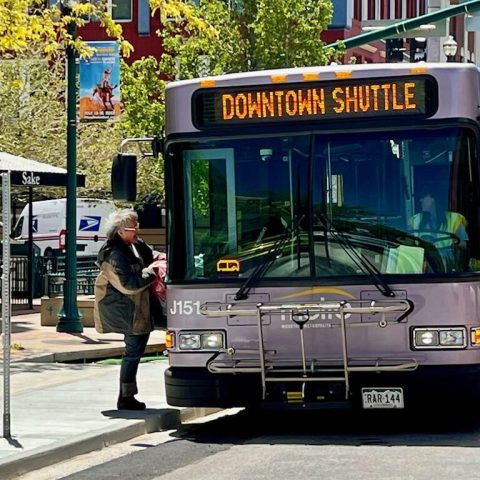Transdev completed acquisition of First Transit
Transdev Group has completed the acquisition of First Transit, one of the largest private-sector operators of mobility solutions in North America. After receiving all necessary regulatory approvals in the U.S. and in Canada, Transdev and First Transit now officially form part of the same company. To date, Transdev operates or maintains more than 400 zero-emission […]

Transdev Group has completed the acquisition of First Transit, one of the largest private-sector operators of mobility solutions in North America. After receiving all necessary regulatory approvals in the U.S. and in Canada, Transdev and First Transit now officially form part of the same company.
To date, Transdev operates or maintains more than 400 zero-emission electric vehicles in North America, with an additional 70 vehicles on order. The group is set to operate a global fleet of 3,000 electric vehicles worldwide by year-end 2023.
Starting today, the combined operations are now led, in the U.S., by Laura Hendricks, CEO of Transdev U.S. based in Lombard, Illinois and, in Canada, by Arthur Nicolet, CEO of Transdev Canada, based in Brossard, Québec.
Transdev completed acquisition of First Transit
This transaction, announced on October 26, 2022, makes “Transdev the leading operator of public transportation services, in the United States and in Canada, across a variety of transit modes, including fixed route bus systems, paratransit, shuttle services, rail, light rail and fleet maintenance”, the France-based group states.
Transev adds: “With the North American public transit market expected to benefit from steady growth over the next five years – and stronger prospects for paratransit, shuttle services and fixed route bus systems – Transdev is confident that these tailwinds will support a significant growth of its business in the region. With complementary business activities and geographical footprints both in the U.S. and Canada, and limited client overlap, this strategic move will be a positive step for our passengers and clients, with an offer enriched by the know-how of the teams of both companies”.
With this transaction, Transdev is enhancing its ability to support public transit agencies in the U.S. and Canada in their energy transition towards decarbonization and the increased deployment of zero emission vehicle fleets. To date, Transdev operates or maintains more than 400 zero-emission electric vehicles in North America, with an additional 70 vehicles on order. The group is set to operate a global fleet of 3,000 electric vehicles worldwide by year-end 2023.
Transdev decarbonization strategy Moving Green
This strategic move is fully aligned with Transdev Group’s “Moving Green” global decarbonization strategy, deployed globally across its operations, which targets a 30% reduction in greenhouse gas emissions per kilometer and a 50% increase in alternative fuel on bus and coach fleets (gas, biogas, biofuels, electric, hydrogen) between 2018 and 2030.
Transdev will now provide some 400 million passenger trips annually in North America, generating combined revenues of $2.6 billion (USD). The combined company will operate, manage, and maintain more than 440 sites in 43 U.S. states, Puerto Rico and six Canadian provinces for communities, schools, universities, airports, and businesses. The combined company will employ more than 35,000 people, with a fleet of more than 20,000 vehicles (owned or operated) and will maintain an additional fleet of some 39,000 vehicles and equipment across the United States, through a dedicated division.
As a result of this transaction, Transdev will reinforce its position as the world’s leading mobility group, with 2022 pro-forma group sales of €9.1 billion and a global staff of over 100,000 dedicated employees. This new scope will result in a rebalancing of Transdev’s business towards its international activities.
Thierry Mallet, Chairman and CEO of Transdev Group, stated: “The acquisition of First Transit is a major strategic milestone for Transdev, significantly reinforcing our group’s competitive position in North America. By combining our strengths, our expertise, our local presence and our common values, we now become the leading operator of safe, affordable and eco-friendly public transportation services in both the U.S. and in Canada. Today, I am very proud and honored to welcome all our new colleagues into the Transdev Group.







